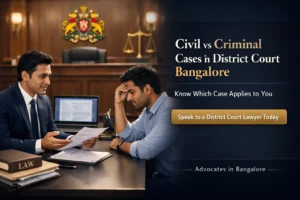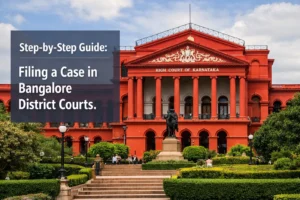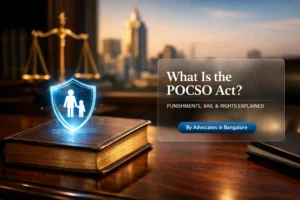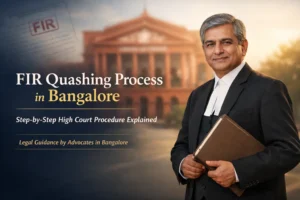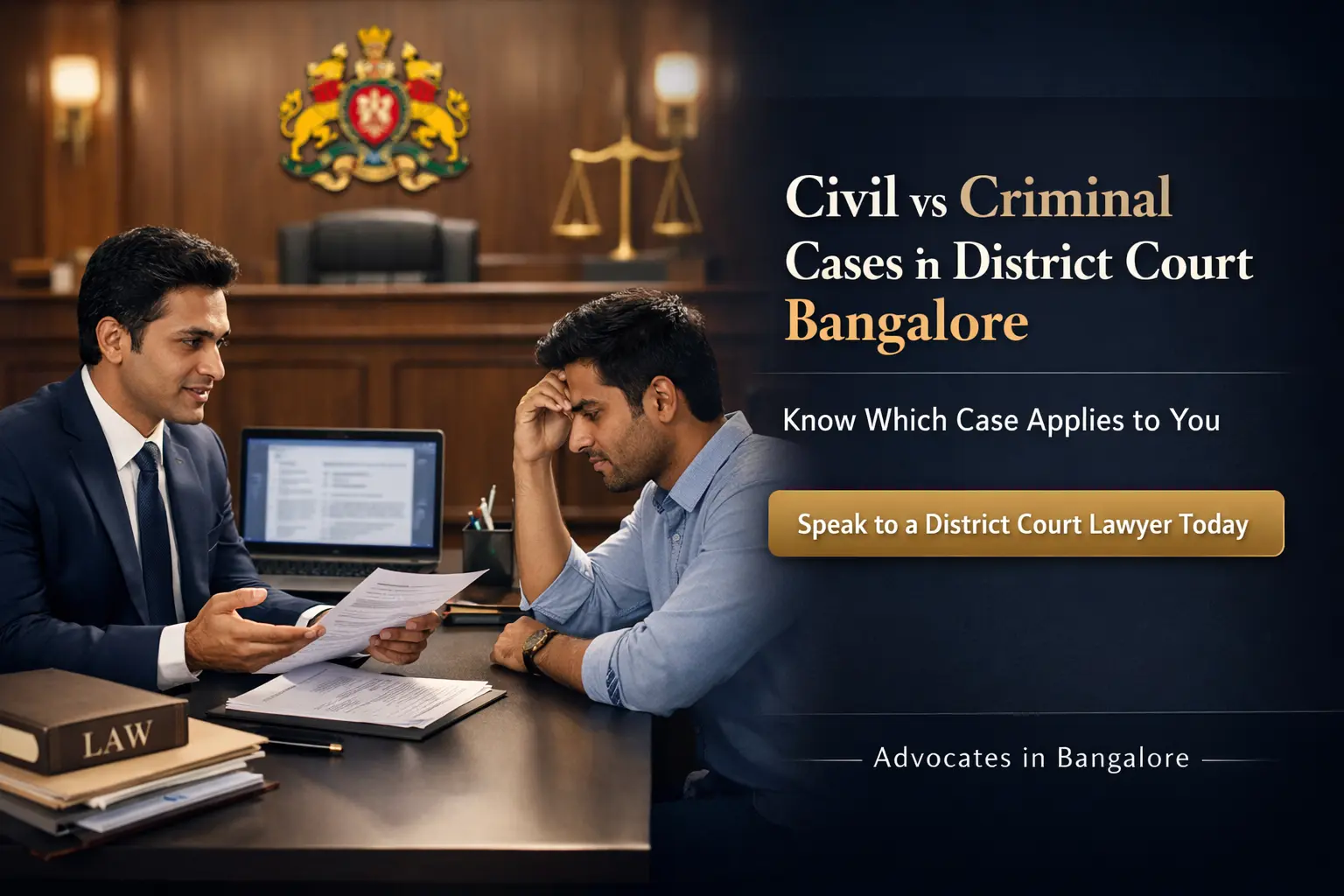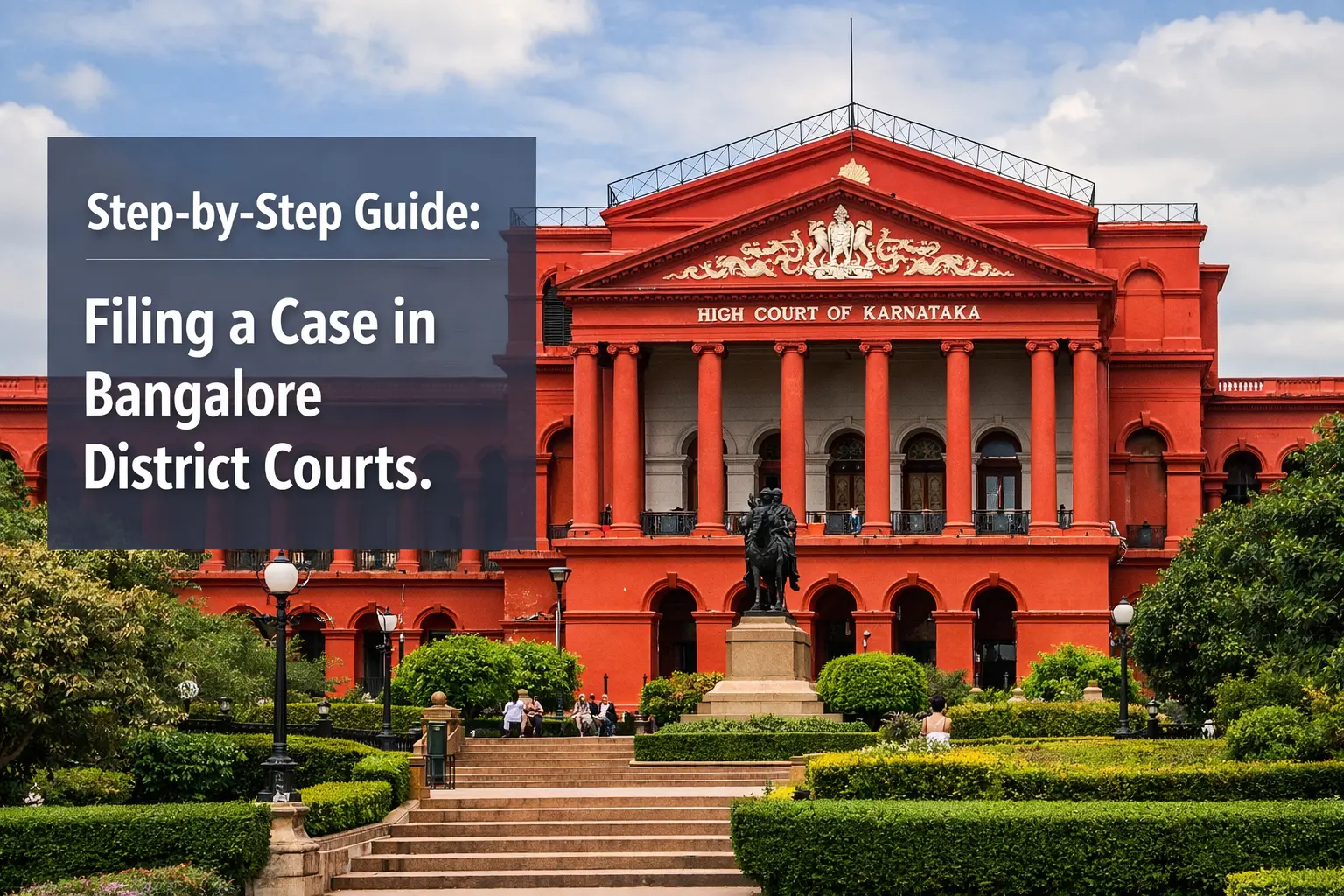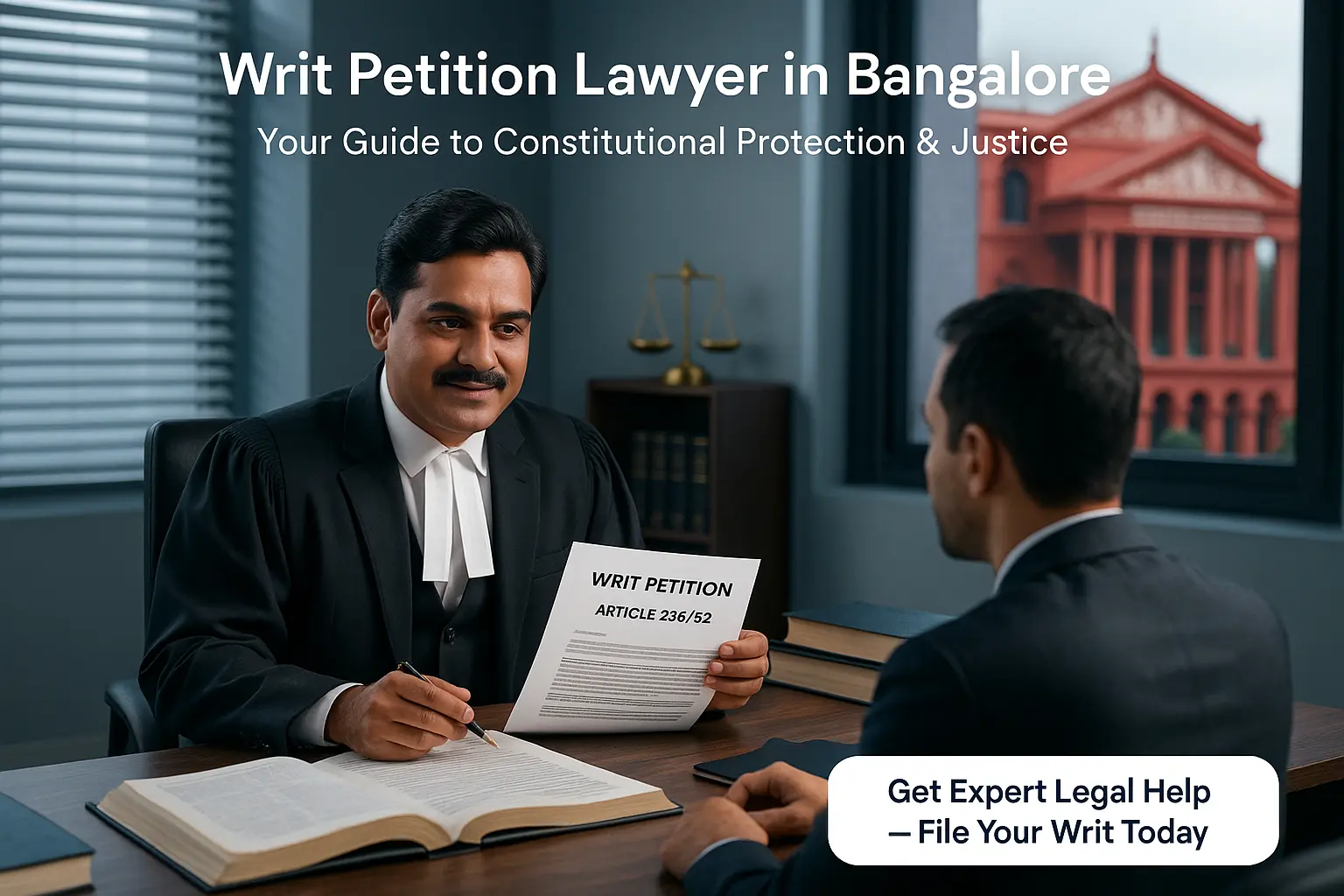
Ever felt like you’ve hit a brick wall dealing with a government office? That feeling of frustration when your application is ignored, your rights are dismissed, or a decision just feels plain wrong? It’s incredibly common, and it can make you feel powerless.
But here’s something you need to know: you’re not powerless. The Indian Constitution has given you a powerful legal tool to fight back. It’s called a writ petition. And if you’re facing this battle in our city, the first step is finding an experienced writ petition lawyer in Bangalore who can guide you. This guide is for you—whether you’re a citizen, a government employee, a business owner, or a student who has decided that enough is enough.
Let’s break down exactly what this means for you and how a skilled writ petition lawyer in Bangalore can help you seek justice.
So, What Exactly is a Writ Petition?
Think of a writ petition as your direct line to the High Court, asking a judge to step in and set things right. It’s a formal order from the court telling a government body to either do something or stop doing something. It’s one of the most important constitutional remedies under Article 226 that you have.
So, what are the types of writs? There are five main ones, and here they are in simple terms:
- Habeas Corpus: The “show me the person” writ. If someone is detained illegally, this forces the police or authorities to bring them to court and explain why.
- Mandamus: The “you must do your job” writ. If a public official is refusing to perform a duty they are legally required to do, this writ commands them to do it.
- Certiorari: The “let’s quash that bad decision” writ. If a lower court or tribunal has made an order that’s illegal or beyond its power, the High Court can cancel it with this writ.
- Quo Warranto: The “by what authority?” writ. This challenges a person’s right to hold a public office they are not entitled to.
- Prohibition: The “stop right there” writ. This is used to stop a lower court from proceeding with a case that it has no jurisdiction over.
You might hear about two key articles. The main difference between Article 32 and 226 is that Article 32 is for approaching the Supreme Court in Delhi directly, while Article 226 is your powerful local tool—it lets you approach our own Karnataka High Court for a wider range of injustices. As a resident, you’ll most likely be exploring the constitutional remedies under Article 226, and a good writ petition lawyer in Bangalore will be an expert in this.
When Should You Seriously Consider Filing a Writ?
Now for the big question: What are the grounds for filing a writ petition? It’s for situations where a ‘State’ authority (like a government department, PSU, or university) has stepped out of line.
If you’re facing any of these, it might be time to seek urgent writ petition filing assistance in Bangalore:
- The BBMP has sent a demolition notice for your home without a proper hearing.
- Your government department has unfairly denied your promotion or transfer.
- Your business license was rejected for no good reason, hurting your livelihood.
- A university is wrongfully withholding your degree or denying admission.
If any of these sound familiar, don’t just accept it. A writ petition lawyer in Bangalore can help you evaluate your options.
The Process: How to File a Writ Petition in High Court
Okay, so you think you have a case. What’s next? While every case is unique, here’s a simple look at how to file a writ petition in the High Court.
- Talk to a Lawyer: This is your first and most important step. Gather all your papers and have an open chat with a writ petition lawyer in Bangalore.
- Drafting the Story: Your lawyer will help you write your petition. This isn’t just dry legal text; it’s your story, backed by facts and legal arguments.
- Filing at the Court: The petition is then filed with the Karnataka High Court.
- The Hearing: Your lawyer will argue your case in front of a judge, explaining why the court needs to intervene.
Now, let’s talk money. The cost to file a writ petition in Bangalore isn’t a fixed price. It really depends on how complex your case is. Be wary of anyone who gives you a low, fixed price without hearing your story. The goal is to find an affordable writ petition lawyer in Bangalore who is also an expert. It’s about value and results, not just the lowest price tag. An honest lawyer will be upfront about the potential cost to file a writ petition in Bangalore after understanding your situation.
Why You Shouldn’t Go It Alone: Hire a Writ Lawyer for High Court
You might be wondering, “Can’t I just do this myself?” While it’s technically possible, it’s like trying to perform surgery after watching a YouTube video. It’s risky. When you hire a writ lawyer for High Court proceedings, you are paying for their experience. They know the procedures, the judges’ temperaments, and how to counter the government’s lawyers.
At Advocates in Bangalore writ petition services, we’ve seen firsthand how an experienced lawyer can turn a case around. A strong legal strategy is often the difference between your petition being dismissed and getting the justice you deserve. If your situation is critical, you need a team that provides urgent writ petition filing assistance in Bangalore.
Finding a Lawyer in Your Corner
When you’re stressed, the last thing you need is a long commute. Searching for a Writ petition lawyer near Vijaynagar, Bangalore is about more than just convenience. It means your legal team is accessible. For us, being the best civil lawyer in Vijaynagar for writ matters means being part of the community we serve. When you need to find a Writ petition lawyer near Vijaynagar, Bangalore, know that having a local expert means having a true partner. We believe we are the best civil lawyer in Vijaynagar for writ matters because we are committed to our local clients.
Don’t let bureaucracy win. Take constitutional action today. Talk to the team at Advocates in Bangalore today!
Quick Answers to Your Questions (FAQs)
1. So, what are the types of writs I can use?
The main five are Habeas Corpus (for illegal detention), Mandamus (to compel an official to act), Certiorari (to quash a bad order), Quo Warranto (to challenge someone’s public office), and Prohibition (to stop a case).
2. What’s the main difference between Article 32 and 226 again?
Think of Article 32 as a specific, direct line to the Supreme Court for fundamental rights. Article 226 is the broader power of our Karnataka High Court to issue writs for fundamental rights and other legal wrongs.
3. Who is the best writ petition lawyer in Bangalore for an urgent case?
The best writ petition lawyer in Bangalore for you is someone with a proven track record in cases like yours who can act fast. Look for a firm that explicitly offers help with urgent matters.
4. How do you file a writ petition in the High Court?
You start by consulting a lawyer, gathering your documents, and letting them draft and file the petition. They will then represent you during the court hearing.
5. I need an affordable writ petition lawyer in Bangalore. Is that possible?
Yes. Affordability is important. A good lawyer will be transparent about their fees and the potential costs involved after learning about your case. The team at Advocates in Bangalore writ petition services is committed to providing expert and accessible legal help.
You Have a Voice. Let Us Help You Use It.
We’ve walked through what a writ is, when you might need one, and how a great writ petition lawyer in Bangalore can champion your cause. Remember, that feeling of being stuck is not the end of the road. It’s the beginning of your fight for justice, and you have powerful rights on your side.
Call Us on: +91-9886747301
Visit Our GMB: https://g.co/kgs/Zbd6EAs

I am Anjan Kumar, the founder of Advocates in Bangalore, a trusted law firm with over 15 years of legal experience and 12,000+ satisfied clients across Bangalore and Karnataka. Specializing in criminal law, divorce law, property disputes, and corporate legal matters, we handle High Court, District Court, and Family Court cases with professionalism and tailored solutions.
Our team has successfully represented 12,000+ clients, earning a reputation as trusted advocates in Bangalore. We operate 24/7, providing expert legal guidance and strong court representation.
At Advocates in Bangalore, we believe in honest communication, ethical practices, and results. We’re here to protect your rights with integrity.
For legal consultation: contact us at anjankumar5328@gmail.com | Call: +91-9886747301

